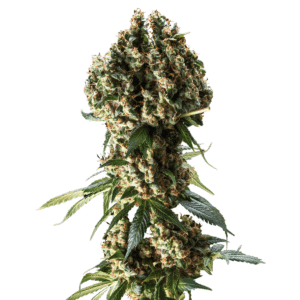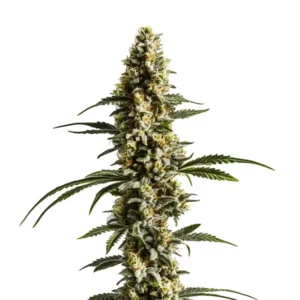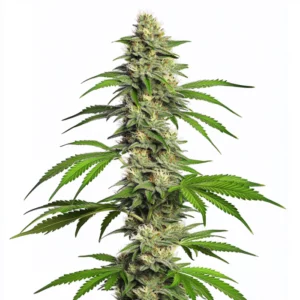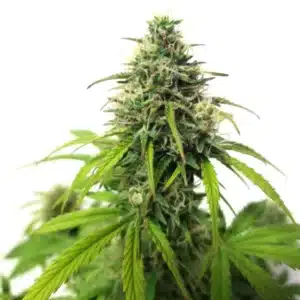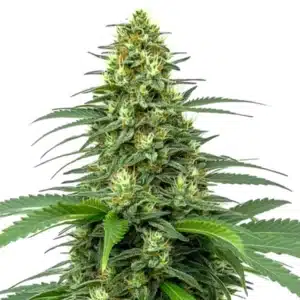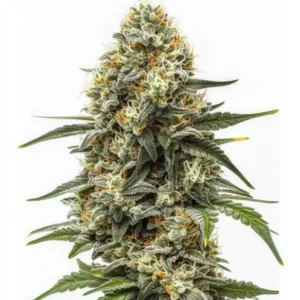
Cost-Effective Enzymatic Cannabinoid Methods
When delving into the world of cannabinoids, finding ways that don’t break the bank is key. Cost-effective enzymatic cannabinoid methods offer a promising avenue. They allow growers and enthusiasts to produce cannabinoids without the hefty price tag. But what exactly makes these methods so appealing?
Enzymatic techniques use natural proteins to speed up chemical reactions. This means you can produce cannabinoids more efficiently. Traditional methods often require harsh chemicals or expensive equipment. In contrast, enzymatic methods utilize nature’s own tools, reducing costs and environmental impact.
Recommended Strains
Orient Auto
|
|
THC | 12% - 15% (Low) |
|
|
Type | Autoflowering |
|
|
Yield | Medium |
|
|
Phenotype | 70% Indica / 30% Sativa |
Granddaddy Purple
|
|
THC | 25% (High) |
|
|
Type | Feminized |
|
|
Yield | Medium |
|
|
Phenotype | 70% Indica / 30% Sativa |
A practical example can be seen in the cultivation of strains like Auto Girl Scout Cookies. By adopting enzymatic methods, growers can enhance cannabinoid production while keeping expenses low. This makes it more accessible for both first-time buyers and seasoned growers.
Economic Benefits of Enzymatic Cannabinoid Production
One major advantage is the significant reduction in production costs. Traditional extraction methods often involve expensive solvents. By switching to enzymatic processes, the need for these costly materials diminishes. This leads to a more affordable production cycle.
Furthermore, these methods are generally safer. Enzymes operate under mild conditions. This eliminates the need for high pressure or temperature, reducing energy consumption. This not only saves money but also minimizes environmental impact, aligning with sustainable practices.
The economic benefits of enzymatic cannabinoid production extend beyond mere cost savings. These methods can also lead to higher quality end products. By utilizing enzymes, growers can fine-tune the extraction process, ensuring that the cannabinoids maintain their integrity and potency.
Additionally, these techniques open up opportunities for innovation in cannabinoid production. As more growers adopt enzymatic methods, the industry can expect to see new, cost-effective solutions emerging, further driving down production costs and improving overall efficiency.
Affordable Enzymatic Cannabinoid Synthesis Techniques
Implementing enzymatic cannabinoid synthesis techniques doesn’t require a complete overhaul of your existing setup. Many growers find that integrating enzymes into their current systems is straightforward. This approach offers a cost-effective way to increase yields without significant upfront investment.
Consider the Auto AK strain. With enzymatic methods, you can boost its natural cannabinoid profile efficiently. This allows for more robust growth and an enhanced end product. It’s a win-win for growers aiming to maximize output while keeping costs in check.
Affordable enzymatic cannabinoid synthesis techniques are particularly advantageous for smaller operations. By lowering the entry barrier, these methods enable more growers to participate in the industry. This democratization of production can lead to increased innovation and diversity in the market.
Moreover, these techniques encourage sustainable practices. By reducing reliance on harsh chemicals and energy-intensive processes, enzymatic methods promote an environmentally friendly approach to cannabinoid synthesis. This not only benefits the growers but also the wider community and ecosystem.
Promos & Deals
Enzymatic Cannabinoid Extraction Cost Efficiency
The extraction phase is crucial in cannabinoid production. Using enzymes, this process becomes not only more efficient but also more cost-effective. Traditional extraction can be labor-intensive and pricey. Enzymatic methods simplify this, making it accessible even for smaller operations.
For instance, think about the Auto Gelato strain. By employing enzymatic extraction, you can maintain the strain’s unique characteristics while reducing costs. This ensures that growers can produce high-quality cannabinoids without the financial strain.
Enzymatic cannabinoid extraction cost efficiency is a game-changer for the industry. By streamlining the extraction process, growers can focus on scaling their operations and reaching new markets without the burden of excessive costs. This is particularly important as demand for cannabinoids continues to grow.
Additionally, the simplicity of enzymatic extraction allows for greater consistency and reliability in production. This consistency ensures that the final product meets high standards, which is crucial for building trust with consumers and establishing a strong market presence.

Low-Cost Enzymatic Methods for Cannabinoids
Low-cost enzymatic methods for cannabinoids are transforming the industry. By cutting down on expensive resources, these methods are setting a new standard. They offer a practical solution for those looking to enter the market without excessive initial costs.
Enzymes are not only cheaper but also more sustainable. They require less energy, which translates to reduced operational expenses. This is particularly beneficial for growers aiming to maintain profitability in a competitive market.
The adoption of low-cost enzymatic methods for cannabinoids can lead to a more resilient industry. By minimizing financial barriers, these methods empower more producers to bring diverse products to market, increasing competition and innovation.
Furthermore, the reduced energy requirements of enzymatic methods align with global trends towards sustainability. This environmental responsibility can enhance a brand’s reputation and appeal to eco-conscious consumers, providing an additional competitive edge.
Enzymatic Cannabinoid Cost Reduction Strategies
Strategizing around enzymatic cannabinoid methods is key to unlocking their full potential. By focusing on cost reduction, growers can enhance their overall production efficiency. This involves evaluating current practices and identifying areas where enzymes can replace more expensive options.
One strategy is to start small. Integrate enzymatic methods into one aspect of production first. Once you see the benefits, expand their use. This phased approach minimizes risks and ensures that cost savings are realized at each step.
Implementing enzymatic cannabinoid cost reduction strategies can significantly improve a grower’s bottom line. By systematically replacing costly traditional methods with enzymatic solutions, operations can become leaner and more adaptable to market changes.
Moreover, these strategies can foster a culture of continuous improvement. As growers become more familiar with enzymatic methods, they can experiment with new techniques and innovations, leading to ongoing enhancements in cost-effectiveness and production quality.
Real-Life Examples of Cost Savings
Growers have reported tangible savings by switching to enzymatic methods. By analyzing different strains, such as the Auto Girl Scout Cookies, they have optimized production costs significantly. This real-life application underscores the practical advantages of enzymatic methods.
Moreover, these savings aren’t just limited to finances. Time is another crucial resource that enzymatic methods help conserve. Faster production cycles mean more frequent harvests, allowing growers to boost their output without additional labor costs.
These real-life examples of cost savings highlight the transformative potential of cost-effective enzymatic cannabinoid methods. By sharing their successes, growers can inspire others to adopt these techniques, fostering a collaborative approach to industry advancement.
Furthermore, as more growers document and share their experiences, a valuable body of knowledge is created. This collective wisdom can guide new entrants in implementing enzymatic methods, ensuring they too can achieve significant cost savings and production efficiencies.

FAQs
What are cost-effective enzymatic cannabinoid methods?
Cost-effective enzymatic cannabinoid methods refer to the use of enzymes to produce cannabinoids efficiently and affordably. Enzymes are natural proteins that speed up chemical reactions. This allows for production processes that require less energy and fewer resources.
These methods bypass the need for expensive solvents and equipment typical of traditional extraction. By reducing costs at several stages of production, they make cannabinoid manufacturing more accessible, particularly for smaller growers or those new to the industry.
Enzymatic methods offer a sustainable alternative to conventional techniques, aligning with the industry’s move towards greener practices. As awareness of their benefits grows, these methods are likely to become a mainstay in cannabinoid production.
Besides to cost savings, enzymatic methods often lead to higher purity and potency in the final product. This enhanced quality can be a significant advantage in a competitive marketplace where consumers are increasingly discerning.
How do these methods reduce production costs?
Enzymatic cannabinoid cost reduction strategies focus on minimizing the use of expensive inputs. Enzymes work under mild conditions, reducing the need for high temperatures or pressures. This lessens energy consumption, which lowers overall expenses.
Additionally, enzymes are reusable. Once introduced into the production cycle, they can continue to facilitate reactions without needing replacement as often as traditional chemicals. This reusability contributes significantly to cost savings over time.
The integration of enzymes into production processes can also lead to reduced labor costs. Automation of enzymatic reactions allows for more efficient use of manpower, freeing up resources for other critical areas of operation.
Furthermore, the stability and effectiveness of enzymes ensure consistent output, minimizing waste and maximizing resource utilization. This consistency is key to achieving both economic and operational efficiencies in cannabinoid production.
Are enzymatic methods suitable for all cannabis strains?
Enzymatic methods are versatile and can be adapted to various cannabis strains. However, the effectiveness can vary depending on the specific characteristics of each strain. Some strains, like Auto Gelato, may respond particularly well due to their natural profiles.
It’s advisable for growers to experiment with different strains to determine which yield the best results when using enzymes. This trial-and-error approach helps optimize production and maximize cost efficiency.
While enzymatic methods are broadly applicable, knowing the unique properties of each strain can enhance their effectiveness. Tailoring the enzymatic process to suit specific strains can lead to even greater efficiencies and product quality.
Collaboration and sharing of insights among growers can accelerate the identification of optimal enzymatic strategies for various strains, further advancing the industry’s collective knowledge and capabilities.
What are the environmental benefits of using enzymatic methods?
Enzymatic methods offer several environmental advantages. They typically require less energy compared to traditional extraction methods, reducing the carbon footprint of cannabinoid production. This aligns with growing trends toward sustainable agriculture practices.
Moreover, these methods use fewer harsh chemicals, minimizing waste and potential environmental contamination. By opting for enzyme-based processes, growers contribute to a cleaner, more sustainable cannabis industry.
Besides to reducing energy consumption, enzymatic methods often result in less water usage, further enhancing their environmental sustainability. This conservation of resources aligns with broader efforts to mitigate environmental impact across industries.
By adopting enzymatic methods, growers can position themselves as leaders in sustainable practices, appealing to environmentally conscious consumers and setting a positive example for the industry as a whole.
Can beginners implement enzymatic cannabinoid methods?
Beginners can certainly implement enzymatic cannabinoid methods. These techniques are straightforward and don’t demand extensive technical expertise. With some initial research and experimentation, new growers can integrate enzymes into their production processes.
Starting with a small-scale setup and gradually incorporating enzymatic techniques offers a manageable way to learn. This approach allows newcomers to experience the benefits firsthand, paving the way for more efficient and cost-effective cannabinoid production.
For beginners, cost-effective enzymatic cannabinoid methods provide an accessible entry point into the industry. These methods require relatively low initial investment, making them ideal for those just starting out.
As newcomers become more familiar with enzymatic processes, they can leverage their growing expertise to refine their techniques, ultimately achieving greater efficiency and quality in their cannabinoid production.



